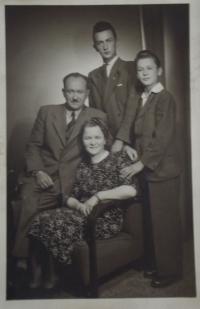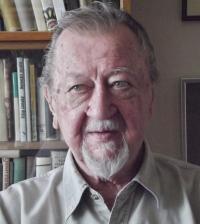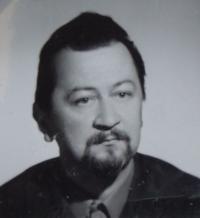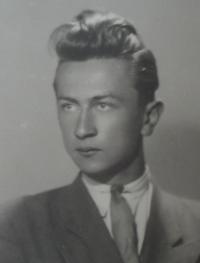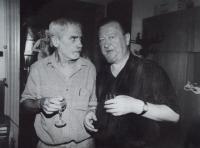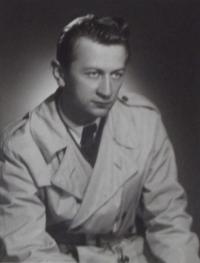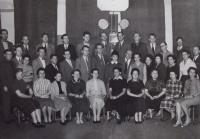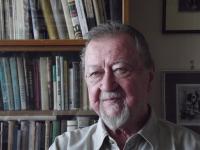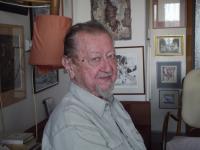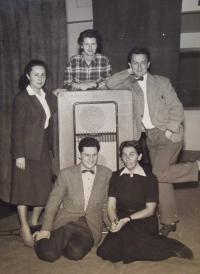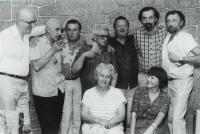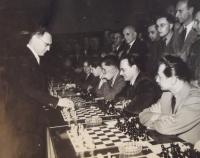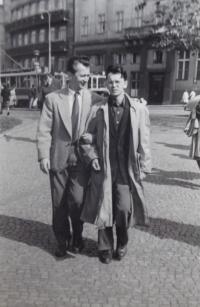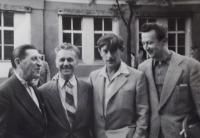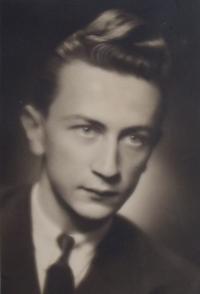Since 1938 I knew that we were not a nation of cowards

Download image
Poet and translator Václav Daněk was born on 9 July 1929 in Prague. His parents were teachers and amateur actors. He grew up in southern Bohemia, and in 1937 his family moved to Kralupy near Chomutov. After the annexation of the Sudetes in 1938 they returned to Southern Bohemia (Bošilec, Frahelž, Veselí nad Lužnicí etc.). Daněk attended grammar school in Tábor from 1940-1945 and graduated from Chomutov in1948. From a young age he showed musical and literary talent. From 1949 to 1951 he was a singer at the Na Fidlovačce Theatre and studied singing under Zdeněk Otava, soloist of the National Theatre. After deciding to shift his work towards a literary career, he studied drama at the Theatre Faculty of the Academy of Performing Arts in Prague from 1950 to 1954. From 1954 until his retirement in 1994 he worked as an editor at the Czechoslovak, (later Czech), Radio in Prague. In 1968 he co-founded the Experimental Studio, and twenty years later he continued this legacy by creating the Audio Studio, which he headed for four years. His wife Ludmila Dušková (1932-2010) was a translator and a long-time editor of the Světová literatura (World Literature) magazine and of the Odeon publishing house. Together, they kept in frequent touch with Soviet writers, and brought their, (often banned), works to Czechoslovakia. Václav Daněk is the author of eleven collections of poetry, and scores of translations from Russian. He also published a book of his memoirs Kam utek Stolkolet (Where the Flyears Went).
